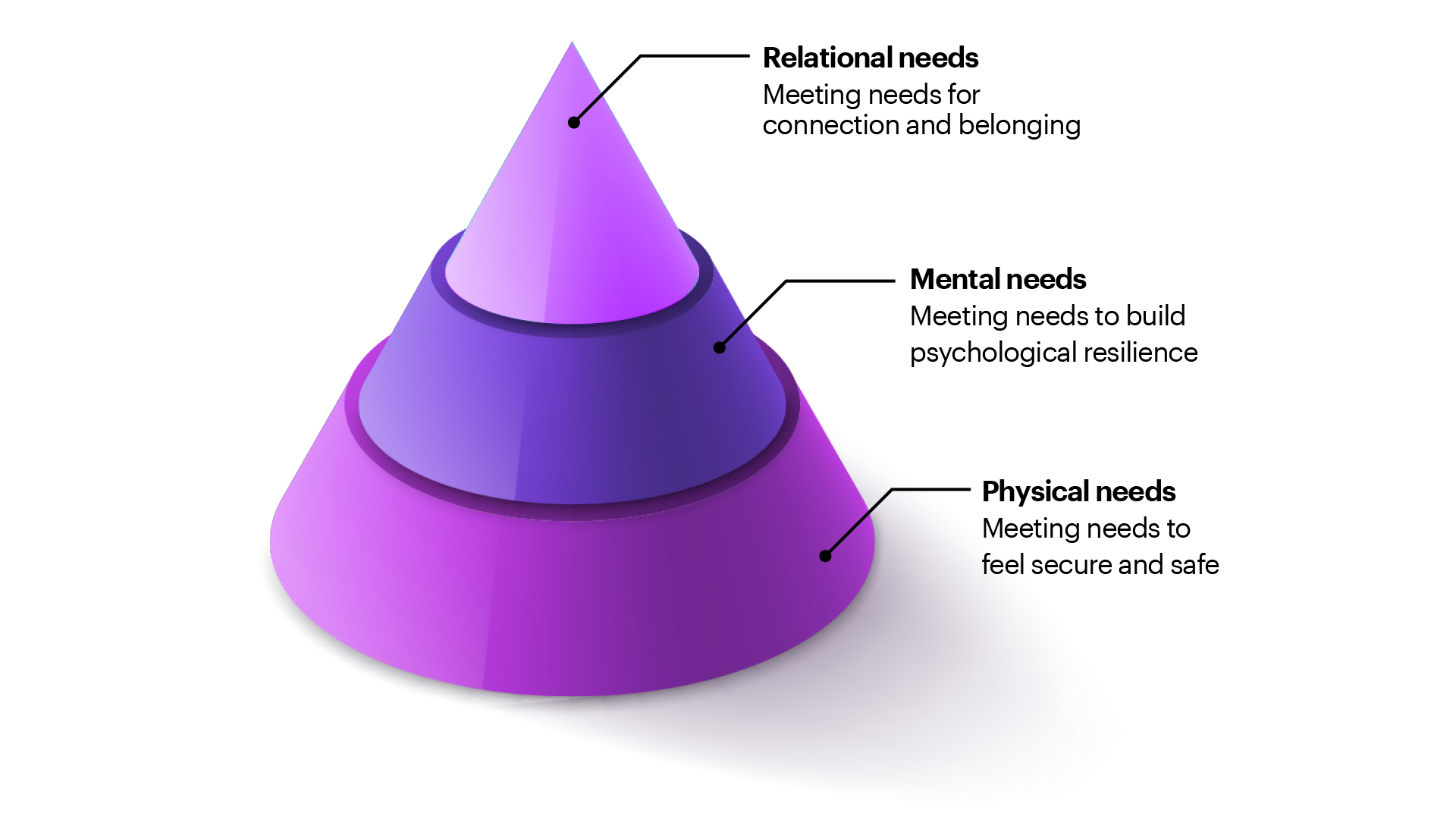Just two months ago, I wrote about sharing a stage in Dublin, Ireland, with two luminaries–producer and educator Lord David Puttnam and economist Dr. Linda Yueh. We offered a positive look forward into the future of business, government and work. I was there to talk to C-suite and senior executives specifically about the kind of leadership our workforces need in this new decade–responsible leadership.
Now, responsible leadership has taken on a far deeper meaning. Our people need it more than ever, in light of the COVID-19 pandemic.
During this difficult time, it is challenging for even the most experienced CHRO to absorb and think through weighty concepts. All of us are trying to carefully focus our attention and energy, so we can put our best selves to work for our people.
One Overarching Need: Trust
Distilled to one essential message, our workforce is looking to trust us. And our people will trust us if they believe leadership cares for each individual, their community and humanity as a whole. People told us they need a leadership team focused on compassion and the care of our people–and relevant information about the current pandemic.
A recent survey supports this–an Edelman Trust Barometer survey, published last month, indicates that people are looking first to their employers for crucial important information about COVID-19. Further, people turn to their corporate leaders as trusted sources of information before they rely on public-health experts or government officials.
But beyond caring and providing information, leaders can also show that they have a plan. People told us they need to have confidence in their leaders’ capability to navigate the future. We don’t have to know everything, but we do need to be transparent about what is driving decisions.
A leadership team that looks ahead proactively, and responds rather than reacts, goes a long way toward helping people in volatile times.
Three Levels of Need: Physical, Mental, Relational
Most of us are familiar with Maslow’s hierarchy, a psychological construct that shows human needs in ascending order in a pyramid. Basic needs at the bottom of the pyramid must be fulfilled before higher needs.

Research shows that workforces have needs in a similar construct. If we can meet our people’s main physical, mental and relational needs right now, we can help them develop the individual and collective resilience so necessary to make it through this crisis and new reality.
Physical needs
- Empower me to take responsibility for my health and wellbeing.
- Provide a working environment where I feel safe.
At a time when many usual freedoms are being restricted, people need help feeling they are empowered to do what is necessary to keep themselves and their families safe and well. Each organization will have its own nuances. In a company with people mainly in physical locations, specific concerns might include no-contact service and wearing protective equipment, with others being worried broadly about the future in this time of uncertainty.
Asking early and often what people need or are concerned about will help our leadership teams determine best actions. It comes down to feeling safe while working, the most basic of human needs. And beyond safety, to leaders supporting their teams’ wellbeing.
Mental needs
- Give me permission to work differently so I can achieve the productivity that helps my mental health.
- Communicate early and often the information I need to do my job, so I can respond to change with resilience.
Right now, teams need flexibility and permission to work differently. Consecutive hours of uninterrupted work may not be feasible, as many people deal with disrupted elder care and childcare, difficulties securing essential supplies at home and potential healthcare issues. Managers have to evolve work rules for more flexibility, based on emotional intelligence and people’s individual needs. Educating managers on this sooner rather than later can help them empower their teams to adapt.
People are asking for consistent, transparent and clear communication from leadership at all levels for productivity and mental health. In a vacuum, employees will create their own versions of the story, which can cause fear and confusion. And these are times for leaders to gain hearts, minds and engagement.
Relational needs
- Show me my connection to our larger mission and purpose, to give me a sense of mission and belonging.
- Provide me with the tools and ways of working that will help me co-create our new reality.
Many people join companies because they share values and a larger purpose. In times of crisis, shared values and purpose need to shine through brighter than ever. Why? Because they are the basis for people’s sense of connection, of belonging to something bigger than themselves.
As citizens of the world realize our shared humanity in new ways during this pandemic, our people will look for the same. And as companies emphasize concern not just for their own people, but also for the community, and humanity as a whole, workers are provided a stable connection to something bigger than the turbulence they’re experiencing.
What We Can Do Now
The 10 actions that will help our people immediately, based on the needs I just detailed, include everything from putting our most compassionate leaders front and center to flattening the hierarchy.
As overwhelming and challenging as this time can be, there has never been a better time for CHROs and our teams to bring our best selves to work. The human side of change is our wheelhouse and our strength. We can help lead our companies–and our people–to the other side of this with grace, courage and resilience.
I wish you health and the energy to help our teams find their own human resilience.

